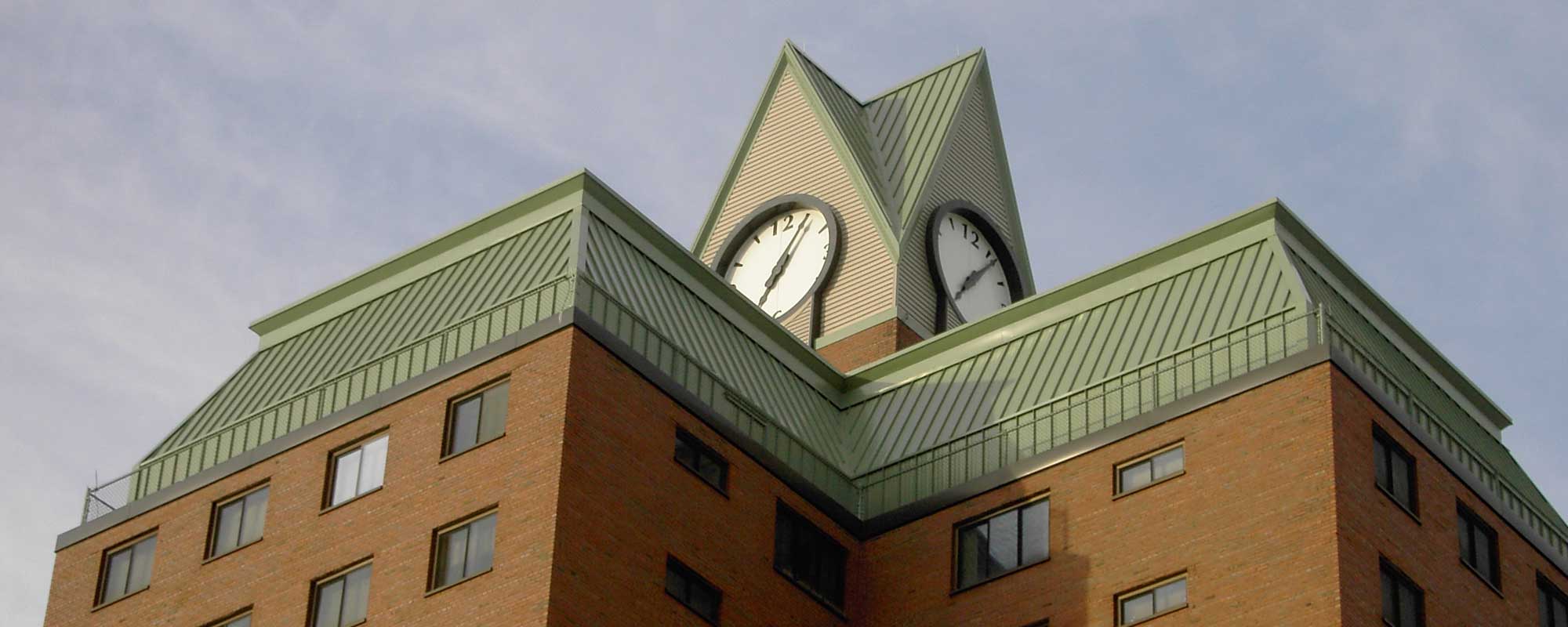Oil Canning
Ultra Seam manufacturing plants across the country have purchased state of the art roll forming equipment to give you the best metal roof system possible at the lowest possible price. It is our intention to install a roof system you will be happy with.
Part of being satisfied is knowing what to expect on your project. If you have any questions as to how the system is installed, details, and advantages or limitations of different metals, feel free to ask your local approved installer or manufacturing location.
On item, aesthetically, that you should know about is what is referred to as “ oil canning “. This is the warpage, or distortion of the flat part of the metal panel. There are several causes for this effect. They are:
1. Thermal expansion and contraction of the metal with temperature change. 2. Waviness and / or side camber in the metal coil stock as received from the mill. 3. Unevenness in the roof deck. 4. Width of the metal panel. 5. Using metal that is not of sufficient gauge.
Thermal expansion, although varying by metal type, is a physical reality on every project. Local climate will affect the degree to which this occurs.
Regarding coil quality, Ultra Seam uses only prime metal sourcing. However, there are industry accepted tolerances in the flatness and absolute straightness of the coil stock. If these are exceeded, we will reject the material. Within these tolerances, the degree of flatness and camber can affect the degree of “ oil canning “ in the finished product. Softer metals will tend to stretch more during the forming process.
A well formed panel, if applied to an uneven deck, will develop some “ oil canning “ and stress when applied to that surface. A perfectly flat surface is very unlikely. However, if there were a major defect in the deck surface, the installer should notify you of that fact.
The greater the width of the metal panel, the greater the “ oil canning “ effect. Thicker gauge and higher strength material will exhibit less “ oil canning “ than a thinner gauge or softer metal. Generally speaking, metal gauges utilized are those that will perform well but not be too heavy to seam, or of a thickness that will unnecessarily increase the cost of the roof. Special job conditions may dictate special metal gauge requirements. 24 gauge coil stock is considered the “ standard “ thickness, accounting for the vast majority of panels produced.
The following items can help in minimizing the “ oil canning “ effect:
1. Use of a textured surface (embossing) on the metal (when available). This defuses the light reflection that makes “ oil canning “ visible. If available for your metal, it is an added cost item.
2. Narrower panels exhibit less oil canning. At the same time, labor costs and material costs will increase. New roll forming equipment allows us to run consistently flat 24 ga. steel panels in the 18 – 20” wide range. If there are uneven deck conditions, long panels, lighter gauge or softer metals, etc. then a narrower panel should be considered.
3. Utilization of striating bends across the flat of the panel will stiffen the panel and increase control over oil canning. This an option that does not add any cost to the panel and should be considered when “ oil canning “ is a concern. Striating is substantially more effective than stiffening or pencil ribs, and is recommended as a standard.
As “ oil canning “ is a phenomenon that is beyond our control (except as minimized by the above 3 items), the existence of such is not cause for rejection. This is consistent with the sales terms of pre-manufactured metal panel systems across the country.

